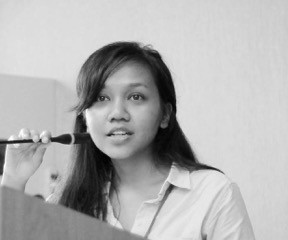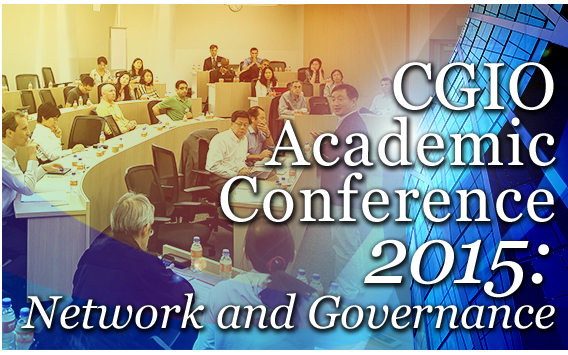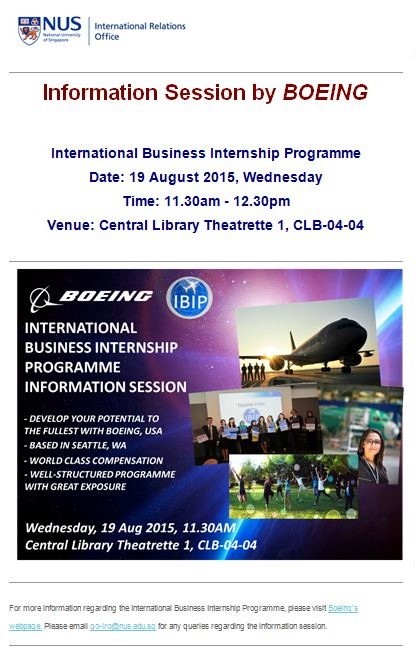
Annisa Ridzkynoor Beta, a graduate student of the Cultural Studies in Asia programme, is a recipient of the Graduate Students’ Teaching Award – an award that recognises and rewards the teaching efforts of FASS graduate students.
Annisa has facilitated the module ‘Social Capital’ together with Dr Vincent Chua (Department of Sociology) for a semester.
Recently, we caught up with her to congratulate her on the award and to find out more about her thoughts on pursuing a graduate programme with FASS as well as her experience as a Teaching Assistant.
1. Why did you choose Cultural Studies in Asia?
It was essential for me, when I was looking for PhD programmes, to study in an environment that will allow my research interests to flourish, not just to have a degree. The programme’s focus on Asia allows me to learn about and further investigate important notions in Asian context that are not taken for granted for its ‘Asian-ness’.
My main research interest is on Muslim women in Indonesia, specifically on their movements and subjectivity. Being in Cultural Studies in Asia PhD programme has allowed me to critically read previous studies about Muslim women in Southeast Asian context. There has always been a conscious effort in the programme to rethink ideas such as identity, representation, power relations, subject formation, and politics of the body in Asian context, and I found it indispensable for my research progress.
Thus, I found Cultural Studies in Asia fitting to my criteria to further my study.
2. How has FASS and NUS contributed to your journey thus far?
Taking different modules from different departments has shown me how supportive FASS and NUS has been for an interdisciplinary student like me. The scholarship scheme, campus facilities, as well as events and seminars organised in the university has facilitated my intellectual growth, and I believe that FASS and NUS have provided me the most vital contributions I need as a young scholar.
3. How do you feel about the award that you have achieved?
I am grateful, and I cannot express how happy I am to receive the award. Assisting Dr Vincent Chua for a semester has opened up a lot of fields of study that I have not thought of before.
Knowing that the module ‘SC3225 Social Capital’ was new for me, Dr Chua was really kind and encouraging, and his sessions were engaging, allowing me to position myself not only as a Teaching Assistant but also as a student of the class itself. Being awarded for an opportunity to learn has made me realized how lucky I am as a PhD student in a very supportive institution like NUS.
4. Can you tell us more about your experience as a Teaching Assistant?
Starting the semester with the module was a bit challenging. However, Dr Chua was very supportive and I felt involved and engaged with the materials. My students were also very interested in the topics in the module, so I felt challenged to work harder as a teaching assistant. For the tutorials, I looked into extra materials, and the students were also asking stimulating questions, and by the end of the semester, I felt like I learnt a whole new set of knowledge.
5. Were there any challenges during the course of teaching?
Not really. Dr Chua provided guidance and information, and students in my tutorial were cooperative and interested in the module.
6. What were the memorable moments?
I always enjoy receiving emails from students in my tutorials. They inquire about issues that may not be addressed in the lectures or tutorial sessions, and I found those electronic discussions motivational for me as a teaching assistant.
7. Has the teaching experience changed your outlook on learning, academic interests or personal aspirations? How so?
Yes, mainly because ‘Social Capital’ was a field that prioritises quantitative analysis, and I have been accustomed to humanities’ qualitative approach in doing research. I learnt that social inequality can also be critically approached via quantitate based research, and for me this opened up more areas in understanding gender issues.
8. What are your future plans with regards to your academic development?
I plan to earn my degree in the next two years, and to focus on developing my research interest through research projects and teaching.





 not only generated significant impacts on domestic politics, but also on the country’s foreign policy. Facing international sanctions, mostly imposed by Western governments, the military government of Prime Minister General Prayuth Chan-ocha has attempted to diversify Thai foreign policy options in order to quench the intensity of outside pressure. For Thailand, in the post-coup period, there has been a strengthening of relations with neighbouring countries, ranging from Myanmar and Cambodia to China and Japan. And meanwhile, Thailand’s ties with Western nations, in particular the United States, which called for the Thai junta to return power to the Thai people, have continued to chill. The visit of the US Assistant Secretary for East Asian and Pacific Affairs, Daniel R. Russel, to Thailand in January 2015, emerged as a diplomatic hiccup that pushed Thailand further into the warm embrace of China. The speaker will discuss the current state of Thai foreign policy in relation to the domestic political crisis in Thailand.
not only generated significant impacts on domestic politics, but also on the country’s foreign policy. Facing international sanctions, mostly imposed by Western governments, the military government of Prime Minister General Prayuth Chan-ocha has attempted to diversify Thai foreign policy options in order to quench the intensity of outside pressure. For Thailand, in the post-coup period, there has been a strengthening of relations with neighbouring countries, ranging from Myanmar and Cambodia to China and Japan. And meanwhile, Thailand’s ties with Western nations, in particular the United States, which called for the Thai junta to return power to the Thai people, have continued to chill. The visit of the US Assistant Secretary for East Asian and Pacific Affairs, Daniel R. Russel, to Thailand in January 2015, emerged as a diplomatic hiccup that pushed Thailand further into the warm embrace of China. The speaker will discuss the current state of Thai foreign policy in relation to the domestic political crisis in Thailand.